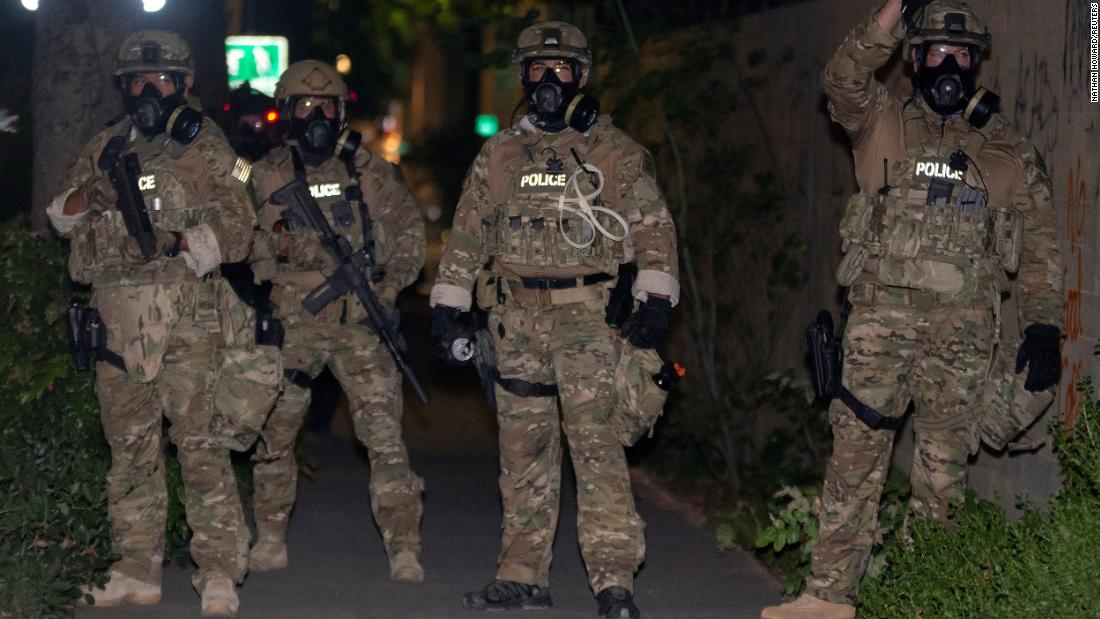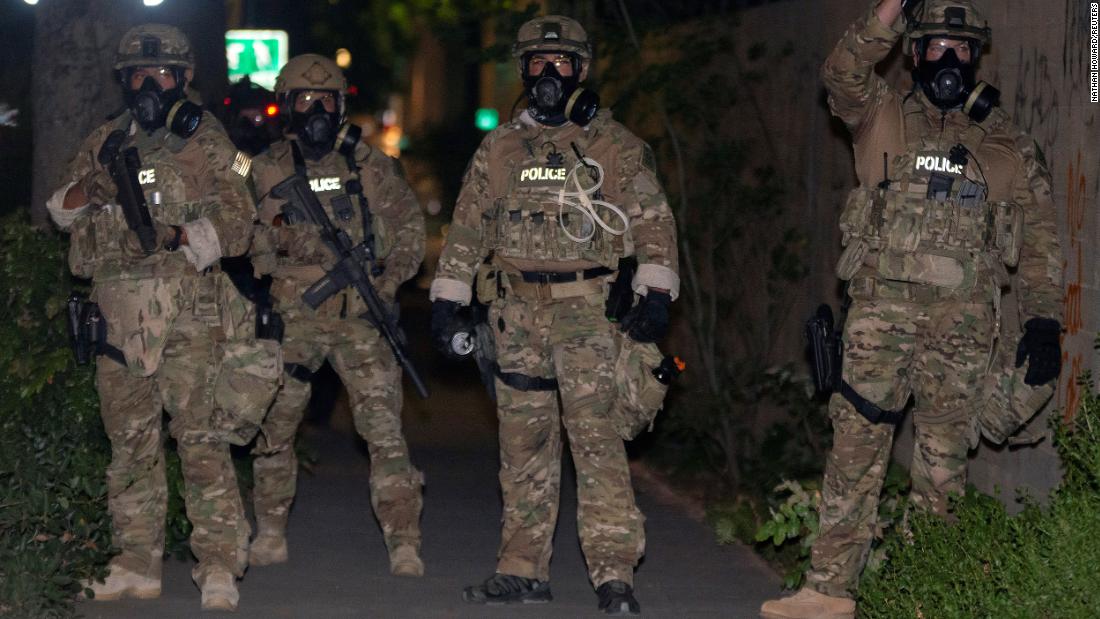[ad_1]

The department’s leadership in acting positions has repeatedly found itself pursuing Trump’s agenda. In the last three years, DHS has rolled out some of the most stringent immigration policies, and most recently, deployed personnel to respond to protests, some of them violent, after George Floyd’s death — nearly all under leadership that hasn’t been confirmed by the Senate.
Of 27 top roles at DHS, 10 are filled in an acting capacity. The three main immigration agencies under the department — Immigration and Customs Enforcement, Customs and Border Protection and US Citizenship and Immigration Services — have been helmed by acting officials for more than a year.
Since 2017, the department has had five secretaries — only two of which were confirmed by the Senate, John Kelly and Kirstjen Nielsen. The others have occupied the role in an acting capacity, often leaving the department’s leaders at the whims of the President and as a result, vulnerable to increased politicization.
“DHS in the Trump administration has been asked to do tasks that are within their mandate, but the political commentary on that purpose — and the suggestion of intent in doing those tasks — have made it unnecessarily political,” a former DHS official told CNN. “I think that applies to a lot of the immigration issues, as well as helping (Federal Protective Service) guard federal buildings.”
“All presidentially appointed positions, whether acting or Senate confirmed, serve at the pleasure of the President,” a DHS spokesperson told CNN.
In the months since Wolf’s been in the job, the department has continued to push forward restrictionist immigration policies, touted Trump’s border wall and doubled down on the President’s message of law and order.
DHS law enforcement officers from Immigration and Customs Enforcement and Customs and Border Protection have been deployed to Portland to assist the Federal Protective Service, which is responsible for protecting federal government facilities and their employees and visitors.
It’s not unusual for Homeland Security personnel to support local law enforcement when requested and work in close coordination with them. After Floyd’s death, which fueled protests nationwide, DHS also deployed more than 600 personnel in part to help protect federal monuments, buildings and property.
“Any time someone makes an allegation of wrongdoing of DHS personnel, it is looked into at various levels,” the DHS spokesperson said.
Despite pushback from local officials, Wolf and other top leadership in the department have repeatedly defended their actions and criticized decisions by the city.
Cucinelli told CNN’s John Berman on “New Day” Monday that as long as a threat remains to federal facilities in the city, DHS would continue to maintain a law enforcement presence there.
“When that violence recedes and those threats recede, that is when we would ratchet back down to what I would call normal presence, defending and protecting federal facilities, that is regularly present in Portland,” he said.
“Moving forward, if this type of response is going to be the norm, specialized training and standardized equipment should be deployed to responding agencies,” the memo reads, according to the Times.
The DHS spokesperson said in a statement that all DHS agencies involved had their training records reviewed to make sure “their tasked missions aligned with their appropriate training.” FPS also ensured officers received additional training for their deployment in the city, the spokesperson added.
Members of Congress have repeatedly called into question DHS leadership. During congressional hearings, it’s common for lawmakers, predominantly Democrats, to raise the issue of acting officials at the department before jumping into questioning. Thompson, a Mississippi Democrat, is among those lawmakers.
“The seven months the Homeland Security Secretary position has remained vacant, and without a nominee, is far too long for a department charged with keeping the country secure. DHS needs well-qualified, permanent, Senate-confirmed leadership as soon as possible,” he said.
Dave Lapan, a former Homeland Security official, noted that in addition to vetting and congressional oversight, Senate confirmations add stability.
“Someone who’s gone through the Senate confirmation process has a measure of stability to their position,” he said, adding that the rhetoric from the top of DHS can influence the department as a whole.
“The standard they’re setting is that DHS is going to be a partisan, political organization,” Lapan said.
CNN’s Chandelis Duster contributed to this report.
[ad_2]
Source link

